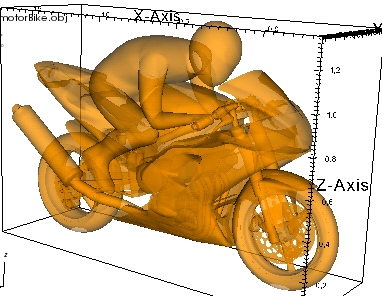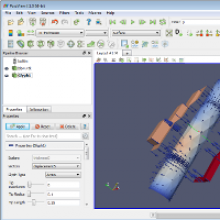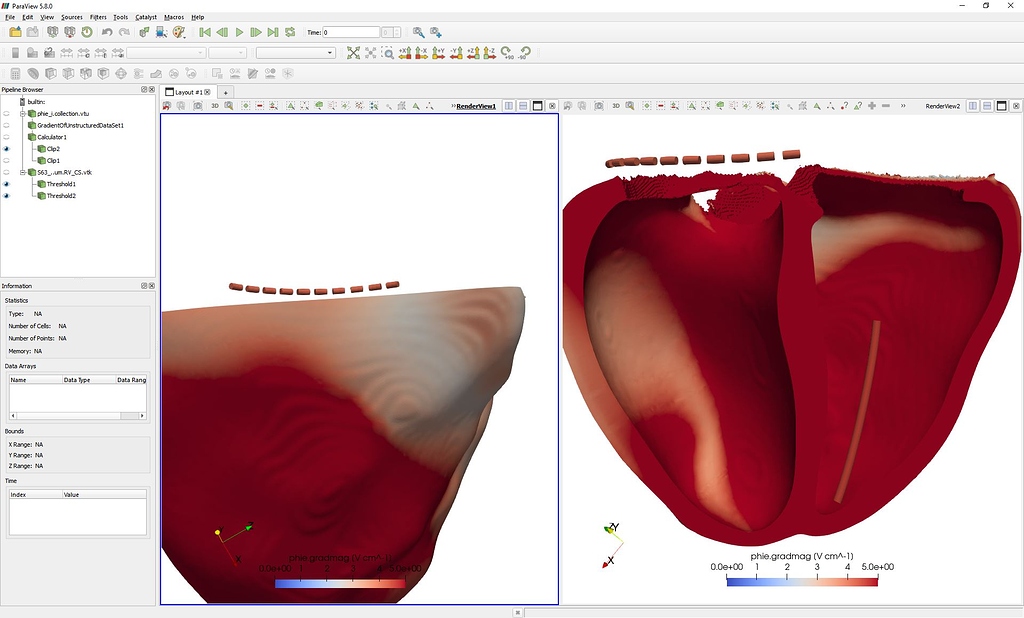

Optional Additions Download And Install ffmpeg (. If, when running ParaView, error messages about a mismatch in protobuf versions appears, moving the libqgtk3.so plugin out of the plugins/platformthemes directory has been sufficient in the past. The Linux packages for Qt 5.9 use a version of protobuf that may conflict with that used by ParaView. Note that on Windows, the compiler used for building ParaView must match the compiler version used to build Qt. Precompiled binaries are available on Qt's website.

ParaView uses Qt to provide its graphical user interface. If it is not, there are precompiled binaries available on CMake's download page. On several systems it will probably be already installed or available through system package management utilities. Qt6 support is experimental and not tested yet.ĬMake is a tool that makes cross-platform building simple. Version 3.12 or newer, however, the latest version is always recommended.However, specific features may require additional packages to be provided to ParaView's build configuration. ParaView only requires a few packages to build with its basic capabilities. The Ninja, Makefiles, and Visual Studio generators are the most well-tested however. ParaView supports all of the common generators supported by CMake. To build ParaView development version (usually referred to as master), run the following commands:.You may also need to add an environment variable QT_QPA_PLATFORM_PLUGIN_PATH: C:\Qt\Qt5.15.3\5.15.3\msvc2019_64\plugins\platforms.Make sure to add C:\Qt\Qt5.15.3\5.15.3\msvc2019_64\bin to your PATH environment variable.Download and install Qt 5.15.3 for Windows, make sure to check the MSVC 2019 64-bit component during installation.Download and install Python for Windows, make sure to add the path to your Python installation folder to the PATH environnement variable.Download and install both msmpisetup.exe and msmpisdk.msi from Microsoft MPI.Download ninja-build and drop ninja.exe in C:\Windows\.Download and install Visual Studio 2019 Community Edition.
#VISIT PARAVIEW WINDOWS#

Please run the command in a terminal to install the following dependencies depending of your linux distribution.
#VISIT PARAVIEW FREE#

It will be built with the Python wrapping, MPI capabilities and multithreading capabilities. If you follow this guide, you will be able to compile and run a standard version of ParaView for your operating system. This is a section intended to help those that have never built ParaView before, are not experienced with compilation in general or have no idea which option they may need when building ParaView. If you are looking for the generic help, please read the Complete Compilation Guide Getting Started Guide The first section is a getting started guide by OS that is very helpful if you have never built ParaView before and do not know which options you need. Some of these are included in the ParaView source itself (e.g., HDF5), while others are expected to be present on the machine on which ParaView is being built (e.g., Python, Qt). ParaView depends on several open source tools and libraries such as Python, Qt, CGNS, HDF5, etc. Please Note that Linux (x86_64), Windows (x86_64) and macOS (x86_64 and arm64) version are built and tested by our continuous integration system and are considered supported environments.Īny other environnements and architecture (including Cygwin, MingGW, PowerPC) are considered non-officially supported, however, patches to fix problems with these platforms will be considered for inclusion. It covers building for development, on both Linux and Windows.
#VISIT PARAVIEW HOW TO#
This page describes how to build and install ParaView.


 0 kommentar(er)
0 kommentar(er)
